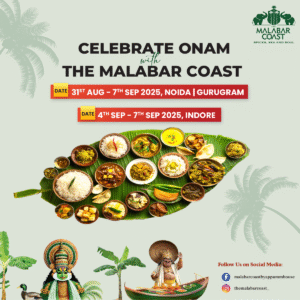
Go Beyond Rejection: 5 Strategies for Converting Sales
Strategies for Converting Sales – The art of effectively managing resistance in a dynamic sales environment is crucial for success, transforming a seemingly insurmountable “no” into a resounding “yes.” According to a recent Salesforce poll, 63% of sales professionals consider resistance to be the most challenging aspect of their job. These findings underscore the prevalence of resistance in sales and emphasize the urgent need for compelling strategies to overcome these barriers. In a world where about 80% of prospects say ‘no’ four times before finally saying ‘yes,’ handling objections is not just a skill but an indispensable art. As we delve deep into the intricacies of this art and explore some proven techniques and real-world data, let’s examine the psychology behind turning resistance into positive results in an ever-changing sales environment. At the Gaurav Bhagat Academy, we instill a deep understanding of resilience at our core, benefiting professionals, entrepreneurs, and students aspiring to become tomorrow’s business leaders.
1. Reframing objections as opportunities
Despite 97% of salespeople perceiving objections negatively, it’s fair to acknowledge that 64% of objectors eventually become customers. To navigate objections effectively, view them as cues that spotlight customer needs. Engage in active listening and ask probing questions to address issues such as budget constraints or time limitations, turning constraints into opportunities for emphasis.
2. Mastering the art of active listening
Improving your listening skills means genuinely paying attention rather than taking shortcuts. Research indicates that 72% of Indian consumers feel ignored during sales interactions. Utilize open-ended questions and discrete observations to uncover hidden concerns such as budget constraints or inventory issues. Respect and compassion are essential; restate their concerns to demonstrate commitment before adapting the solution to their needs.
3. Common objections and effective responses
Adopt a recessionary approach. ICICI data shows that 84% of Indian consumers prefer data-backed conversations over price disputes. Emphasize ROI by demonstrating savings, productivity improvements, and revenue potential. Counter urgency doubts with competing developments. Utilize local case studies and straightforward language to emphasize the value of products. Tailor responses to Indian priorities.
4. The power of storytelling and social proof
Bain’s research shows that 88% of Indian consumers prefer brands that share reviews. Shift from traditional storytelling to inspirational storytelling: Show how “Suresh from Jaipur” doubled profits or how “Rani from Chennai” simplified HR functions. Community endorsements and Hindi certifications build credibility, enabling customers to support you and overcome objections.
5. Maintaining a positive and professional approach
A Harvard Business Review survey revealed that 86% of Indian consumers prefer services provided by organized and courteous sales professionals. Focus on relationship building rather than coercive tactics. Offer solutions warmly and respectfully even in the face of opposition. By 2023, a Deloitte study estimates that 68% of Indian consumers, fewer today, are likely to be loyal tomorrow. Offer options and build relationships through regular follow-up and support. In the Indian context, patience and genuine connection play important roles in turning rejection into acceptance.
Takeaways
In sales, “no” is not the end but an opportunity to demonstrate objection handling skills. With empathetic, custom solutions, closed doors can become welcoming ones. Confidence in real Indian sales and relationships turns initial resistance into a resounding “yes”. Success depends on nurturing connections beyond contracts, understanding that sales plants lasting partnerships. Embrace objection management and sympathetic, tailored solutions. Listen carefully, be genuinely empathetic, and provide thoughtful responses. Maintain professionalism and a positive attitude, guiding conversations with respect and a smile. Remember that “no” is not an obstacle but an opportunity to build relationships. Embrace resistance management and witness initial hesitation turning into winning compromises.
By Gaurav Bhagat, Founder, The Gaurav Bhagat Academy



